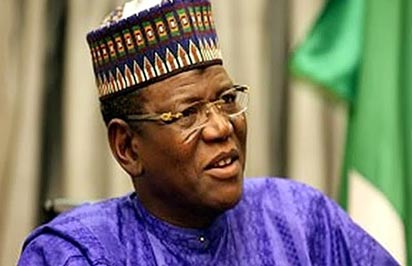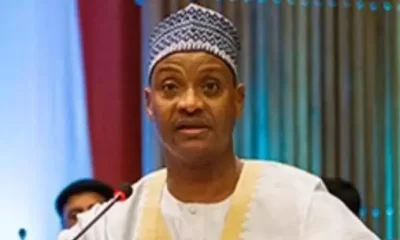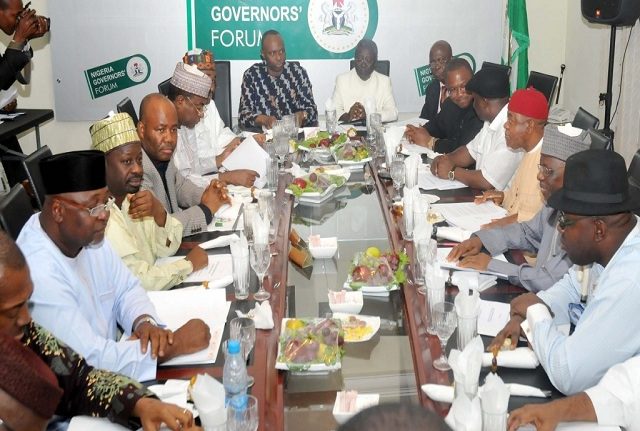National Issues
Sule Lamido And The Jigawa Narrative (2) -By Suleiman Uba Gaya

If one is talking about empowering the people, that airport built by Lamido in Dutse is one of the most enduring and sustainable means. Until that airport was built, not many people would agree to go to Dutse on business or leisure, as it automatically means driving over a hundred kilometres by road, from Kano. Even the efforts made by incumbent Jigawa governor Badaru to lure “foreign investors” to the state will have amounted to naught, as they can’t risk their lives travelling a long distance by road.
With an old school discipline and the panache of a 21st century diplomat, Sule Lamido has succeeded in proving that when human resolve is wedded to genuine vision, , critical transformation of the human condition occurs. For Jigawa State this is what Governor Lamido has done.
Those interested in governance will wonder what the inaugural vision behind Sule Lamido’s transformation is. The answer came from Lamido himself when he summed that it is aimed at creating “a secure and just society full of opportunities where the people are sufficiently empowered to participate in decisions and processes that affect their lives with an enabling environment for sustainable growth anddevelopment.” Against this backdrop it was perhaps not surprising whathe achieved. And more than ever before, the people of Jigawa have had their opportunities boosted, and the state can no longer be taken for granted. Someone said it is because of this that the Jigawa ministerial nominee was given a substantive portfolio of water resources by President Muhammadu Buhari two days ago. When Sule was the governor, Jigawa even had two ministers in the persons of Professor Ruqayyat and Dr. Nuruddeen.
From the outset, Governor Lamido targeted seven priority arenas: education, health, agriculture, economic empowerment, water, infrastructure and public accountability. The conceptual clarity of his governance approach and ideological framework were game-changers. With these he was able to confront Jigawa’s alarming underdevelopment in a way that was satisfactory to the yearnings of the vast majority of his constituents.
Perhaps his erstwhile portfolio as foreign affairs minister exposed Governor Lamido to the deeper meaning of education in the 21st Centuryand he made a particularly intensive effort in this critical theatreto change his home state. The disheartening cow sheds that passed for class rooms were immediately destroyed and mint new spaces for imparting education were erected. In his first term he constructed 1,061 classrooms across the state and purchased 62,981 classroom furniture.
Out of the 779 dilapidated schools he inherited in 2007, Lamido’s administration renovated and restored 648 to full standard andequipped most of their laboratories to WAEC standard. He also established 21 new Junior Secondary Schools primary schools. Turning to nomadic education he constructed 216 nomadic schools across the state approved 64 schools and the renovation of 27 others, projects tackled with gusto during his final term. A total of 600 teachers have received various training for this purpose and he also initiated a scholarship scheme for 100 best students in the sciences every year to overseas universities.
Perhaps the high point of his education sector accomplishments was the building of the Jigawa State University which has already impressively set sail. In Jigawa’s Health sector, statistics in 2007 showed that Jigawa State had the highest maternal and infant mortality rate in the country and hospitals and other health institutions were simply imaginary structures.
At press time, Governor Lamido has developed an effective and impressive health care system under the Gunduma Health Care system with a bottom-up approach from primary health care to the secondary and the tertiary. The Rasheed Shekoni specialist Hospital, the most modern equipped hospital in Nigeria stands in testimony of this. Jigawa State today offers free maternal services covering delivery and the child’s life up to the age of five.
An agrarian society, in Jigawa agric accounts for over 90% of its peoples’ preoccupation but the old fashioned way. The introduction of improved and high yielding seeds, subsidized tractor prices/hiring, loans facilities for work bull and appliances, farm extension services, crop fumigation and aerial spray against pest, opening of Fadama irrigation in suitable local governments for the youths and government’s purchase of excess harvest as incentive to grow more led to dramatic improvements in the sector.
His innovative economic empowerment policy led to the construction/reactivation and equipment of six skills acquisition centres in Birnin Kudu, Dutse, Hadejia, Gumel, Ringim and Kazaure to train Jigawa’s youth in various trades and services, ranging from shoe making, cell phone repairs, chalk making, paint making, photography, tailoring, horse decoration, plumbing, mechanics and other such skills.
On the infrastructure front, Governor Lamido’s regime spent in its first term over N43 billion on roads, ranging from asphalting major arteries which intersect across the state to building new inter-town/inter-local government network that has made Jigawa to assume spider web in road facility today. It actually can be argued that Jigawa State has the best road network in Nigeria.
He also embarked on the transformation of all the local government Headquarters into modern cities with asphalted township roads and drainages complete with street lights. The governor’s construction of an international airport to mainstream the state perhaps represents the high point of his infrastructure game-changer.
In the public accountability and water development spheres, Lamido probably lacks a match currently. His administration achieved 90% potable water services to Jigawa people. In a recent water conference held in Nigeria, Jigawa was cited as a model worthy of emulation by other states in the federation.
— Gaya, the Vice President (North) of the Nigerian Guild of Editors, wrotes from Lome Crescent, Wuse Zone 7, Abuja. He can be reached on: suleimanuba1@gmail.com

















